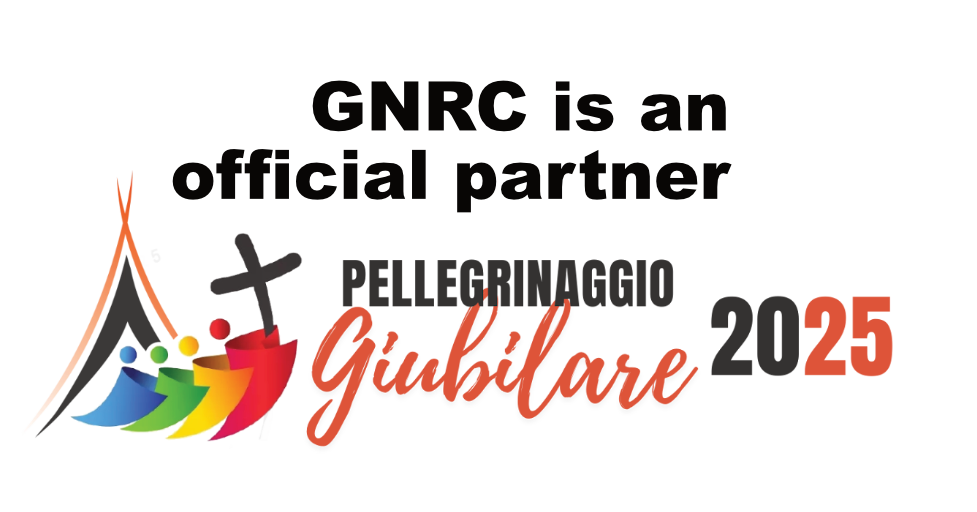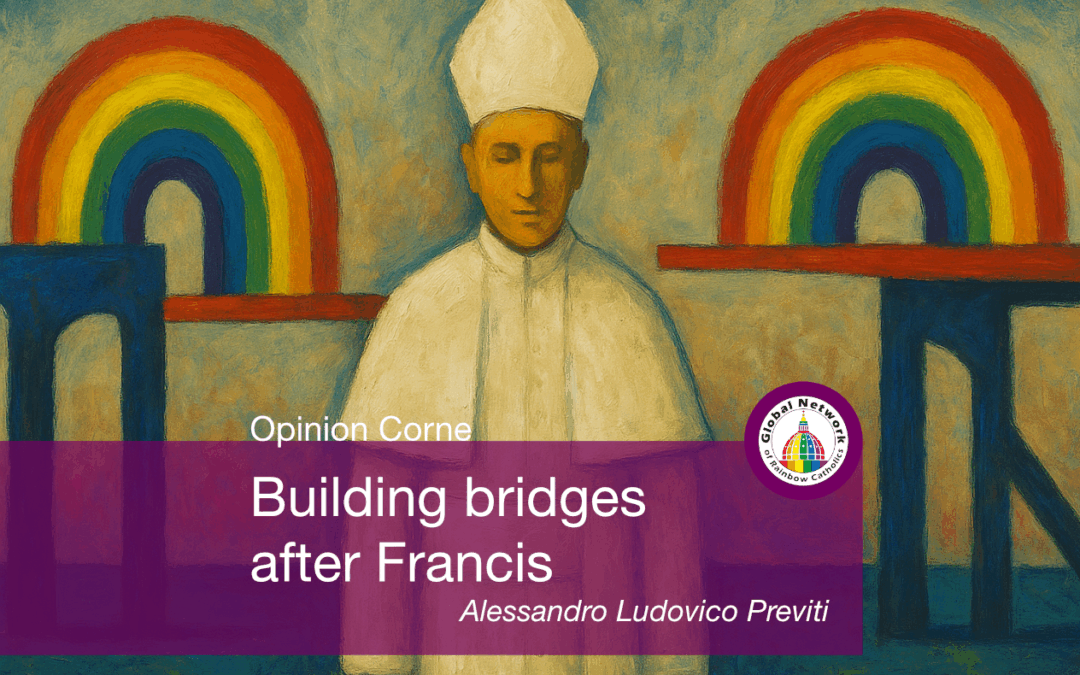Building bridges after Francis
The papers speak of a centrist Pope. The Italian newspaper La Repubblica called him “cosmopolitan,” highlighting his pastoral experience across Latin America, North America, and Europe (source). Axios noted he is “neither culture warrior nor radical reformer,” describing him as “empathetic,” firm, and calm (source).
But “centre” is a word that hides as much as it reveals—and one we should fear not.
For those of us who have long stood at the margins of Church discourse: LGBT people of faith, families walking alongside their children, pastoral workers who witness daily contradictions, the centre is not a place. It is a tension. It is a space we step into only when others make room.
Pope Leo XIV began his pontificate with a call to “disarmed peace” and to build bridges (source). It is not the first time he has spoken this way. In earlier writings and interviews, he warned against the temptation to use identity—any identity—as a weapon, and lamented that in some places, expressing Christian faith is met with suspicion or shame (source).
These words may sound distant from LGBT conversations. And yet, in my experience, dialogue has often begun from such crossings; when the Church feels vulnerable too, when those once presumed powerful speak of their own exclusion.
Many LGBT Christians faced exclusion, not only from the Church, but from LGBT organisations. Though often formally open to all, some of these spaces adopt anti-religious stances once the window blinds are lowered. They treat faith not as a lived resource, but as an obstacle to be discarded. This has hurt those who live both identities with integrity, longing for a home that doesn’t ask them to reject faith or identity. Some voices in today’s LGBT+ discourse dismiss the value of family, not as a personal choice, but as something that should be set aside for everyone, a social transformation for all. And just as some homophobic voices reject LGBT dignity outright, when any group seeks to erase what others hold dear, dialogue becomes not just difficult, but impossible.
I am a mediator, a bridge-walker: I move across networks, trusted for presence and results more than a fixed position, often building bridges between secular and faith based LGBT+ groups from different countries. It is a path of dialogue, compromise, patience, and clarity, where full allegiance is often demanded by one side or another, each urging for total alignment.
Among the groups I work closely with are GNRC and La Tenda di Gionata, animated by people who live dialogue as a principle.
Walking in balance, holding democracy as a core value, and choosing to serve as a helper between voices, is a difficult calling. It means listening deeply, absorbing tensions, and often being questioned by all sides.
We don’t raise our voices to overpower; we take our place at the table and bring our stories. Patiently, consistently. Some call it slow; we have no illusions about quick recognition. But we’ve seen it open doors that force would only seal; across faith-based and secular settings, conservative and progressive circles, leading to encounters with priests, bishops, and even repeated meetings with Pope Francis. The same applies to my journey as president of Polifamiglie, an NGO that gathers individuals living in polyamorous family forms shaped by commitment and traditional values; even if it might sound surprising for some, Pope Francis welcomed our stories and testimony.
Being willing to question oneself is at the heart of it all. When you shout, you can shout however much you want, and you may hope that you shout loud enough for others to give up. Dialogue works differently: it means listening and speaking, being open to impact and being impacted, to change and be changed. It means that neither side can fully control the outcome; that the result often moves away from what either expected at the start and yet, is not a disappointing compromise.
It is not a theory on dialogue, not advice from an out of touch book. It is the power of dialogue, experienced, and measured in results.
I believe that if we truly want to be with the Catholic Church, then we must walk together; not demanding that our voices set the pace, but trusting that shared steps are stronger than solitary declarations. We have seen this method bear fruit. And if we want to shape a future where people can live their loving relationships with dignity, then we must dialogue with faith communities. Because faith is part of lived experience, a part that demands dignity.
In Pope Leo XIV, I project no hopes, and carry no mistrust. If he truly stands in the middle, then the middle must remain porous, listening to the left and the right, to the cloister and the street, to the monastery and the kitchen table.
We continue to walk. And we will continue to speak, not shout. Because listening is the most revolutionary act, and dialogue is an act of faith.
Alessandro Ludovico Previti


